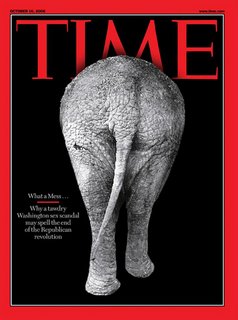 The new TIME Magazine cover says it all, doesn't it? The view is what North Korea saw as George forked over $95 million in 2002 with no strings attached. Both FDL and The Nitpicker have the scoop that the American press won't report but Jesus General snips the quote that puts this N. Korea threat into perspective:
The new TIME Magazine cover says it all, doesn't it? The view is what North Korea saw as George forked over $95 million in 2002 with no strings attached. Both FDL and The Nitpicker have the scoop that the American press won't report but Jesus General snips the quote that puts this N. Korea threat into perspective:
Don't despair over North Korea's nuclear test. It's part of Our Leader's plan to build a case for bombing Iran. That's why he waived North Korea's inspection requirements back in 2002:Welcome back to Wingnutsylvania where our leaders invade a country with no nuclear threat to the US and ignore, oh, I dunno, things like a CIA briefing, "Bin Laden Determine to Strike In US." Why would George give North Korea $95 million and then waive inspection requirements? You figure him out. I think Bush is psycho.In releasing the funding, President George W Bush waived the Framework's requirement that North Korea allow inspectors to ensure it has not hidden away any weapons-grade plutonium from the original reactors.Why would Our Leader bomb Iran to punish North Korea? For the same reason he attacked Iraq to punish Al Qaeda. It's what emperors do.
UPDATE Oct. 10: Bush pulled a double-cross on North Korea:
Paradoxical as it may seem, Pyongyang staged the test as a last-ditch effort to jump-start a bilateral dialogue on the normalization of relations that the United States has so far spurned. Over and over, I was told that Pyongyang wants bilateral negotiations to set the stage for implementation of the denuclearization agreement it concluded in Beijing on Sept. 19, 2005, with the United States, China, Russia, Japan and South Korea.
Washington focuses on Article One of the accord, in which North Korea agreed to "abandon all nuclear weapons and existing nuclear programs." But what made the agreement acceptable to Pyongyang was the pledge in Article Two that the United States and North Korea would "respect each other's sovereignty, exist peacefully together and take steps to normalize relations."
In North Korean eyes, it was a flagrant violation when, four days after the agreement was signed, the United States in effect declared economic war on the Kim Jong Il regime. The Treasury Department imposed financial sanctions designed to cut off North Korean access to the international banking system, branding it a "criminal state" guilty of counterfeiting and money laundering.
The sanctions issue has given the initiative to hard-liners in Pyongyang, who can plausibly argue that the sanctions are the cutting edge of a calculated effort by dominant elements in the Bush administration to undercut the Beijing agreement, squeeze the Kim regime and eventually force its collapse.
To be sure, the United States should take action against any abuse of its currency. But the financial sanctions are not targeted solely against counterfeiting and any other illicit North Korean activity. They go much further by seeking to cut off all North Korean financial intercourse with the world. The United States has warned financial institutions everywhere, Treasury Undersecretary Stuart Levey said Aug. 23, "of the risks in holding any North Korean accounts."
Foreign businessmen and diplomats in Pyongyang told me of numerous cases in which legitimate imports of industrial equipment to make consumer goods have been blocked by the banking sanctions. This slows down the efforts of North Korean reformers to open up to the outside world and curtails economic growth. So far, the sanctions do not appear to be undermining the regime, but North Korean leaders can feel the noose tightening.
The Bush administration says that it is not pursuing a policy of "regime change," but the president did tell Bob Woodward that he would like to "topple" Kim Jong Il, according to Woodward's book "Bush at War." Recently, when a State Department official told Levey that the sanctions should distinguish between licit and illicit North Korean activity, Levey replied, "You know the president loves this stuff." Robert Joseph, John Bolton's successor as undersecretary of state for arms control, said at a recent State Department meeting that he hoped the sanctions would "put out all the lights in Pyongyang."
To advance U.S. security interests, the United States should agree to bilateral negotiations. It should press North Korea to suspend further nuclear and missile tests while negotiations on normalization proceed, freeze plutonium production and make a firm, timebound commitment to return to the six-party talks. In return, the administration should negotiate a compromise on the financial sanctions that would reopen North Korean access to the international banking system, offer large-scale energy cooperation and remove North Korea from the State Department's list of terrorist states, thus opening the way for multilateral aid from the World Bank, the International Monetary Fund and the Asian Development Bank, all of which North Korea is actively seeking to join.Bush doesn't do diplomacy especially those actions that could diffuse a war. He likes blowing stuff up and oppressing the already oppressed innocent North Koreans. Yeah, our president is a psycho and foreign affairs buffoon.










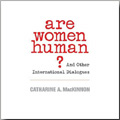
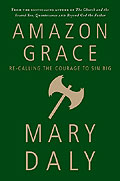



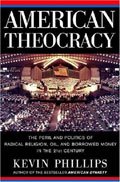





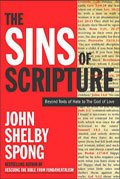

|